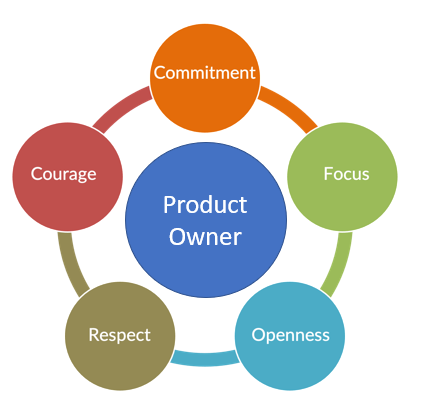Who should be the Product Owner in Scrum?
I'm writing another article for @TechTarget about #Scrum and I'd love some feedback and insights. Maybe even someone I could quote in the article.
A question that gets asked often on Google and Bing (just joking, nobody uses Bing), is "Who should be the Product Owner?"
Organizations really struggle with this:
- They think the Project Manager should take it on
- They think it can just be a side hustle for a business analyst
- They don't think it's a full time position
Organizations want a simple answer.
Trust first, competency second?
I think it really comes down to who in the organization has the skills to be the Scrum Product Owner. But I think that might actually be second.
First, I think it's someone who has the trust and confidence of the stakeholders and the Scrum Team.
Without complete confidence and trust, the Scrum Product Owner will be second guessed and that will impede progress.

[Image from scrum.org]
Scrum's Product Owner Role
So, who should be the Product Owner in Scrum?
Also, I see a lot of people asking 'Who should be the product owner in Agile?'
I know this is a Scrum Forum, but does the answer to who should be the Product Owner change much with other Agile approaches?

[Image freely license under Wikipedia Commons]
Would love to hear your insight, and potentially quote you in the article. (I would ask you permission separately before I do that, of course.)
Thanks!
Organizations want a simple answer.
If Product Ownership is in doubt, the simplest thing to do is to stop work in preference for other initiatives where accountability is clearer.
Simplicity like this terrifies organizations. What they usually want is a lazy answer which demands nothing in the way of enterprise change.
>> If Product Ownership is in doubt, the simplest thing to do is to stop work in preference for other initiatives where accountability is clearer.
If ever there was a sentence that needed decomposition, this is it!
Could you possibly expand on that? I think there's a lot of value packed into those words. I have so many questions!
The biggest conversational black hole I think I've ever found myself in comes from trying to help an organization that doesn't really want to change to 'do scrum'.
A few things that I would always clarify first;
Scrum is not about just renaming people in your existing hierarchy, it's about eliminating hierarchy (at least at the level of the team responsible for delivering our products).
The Product owner IS A MEMBER OF THE SCRUM TEAM. I'm sorry, I know you already know this, but I really need to stress how important it is that leadership understands this.
finally, The product owner is individually and entirely responsible for the product backlog, the product goal, and the delivery of value to the customer.
So, when all that is understood, the answer generally becomes pretty clear. Someone who understands the product and the customer, is not in a position of power above the team, and someone who has the ability to communicate with the business and customers in order to help the team align to value delivery based on real transparency of customer needs.
Generally, that is not a project manager. I've never seen that work out well, though i'm sure it happens.
In the best case, it's someone who would otherwise be a developer. (in the scrum sense, not the traditional sense).
If the organization isn't able or willing to empower the team to self-reflect and choose a product owner themselves, they should at least identify someone who meets that other criteria. No managers, no executives and no team leads. Someone who knows the product, knows the customer and can collaborate with the team as an equal.
If you get the painful answer of 'We don't have anyone like that', then the short answer is 'you're not ready to do scrum'.
(In reality they're saying, we don't trust our people enough)
Not to self-promote too much, but take a look at the blog I wrote. You might get some ideas for your article: https://www.scrum.org/resources/blog/making-sense-product-owner-effectiveness
Thanks for the link to your blog, @Chuck. I'll probably plagiarize this for my article.
I mean steal it.
I mean quote it. Yes, quote it. :)
Do I have your permission to pull some quotes out of it?
Of course you can quote me, as long as it's something good!



